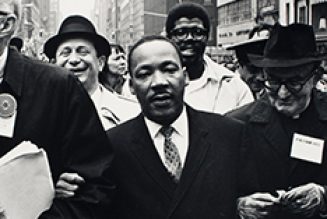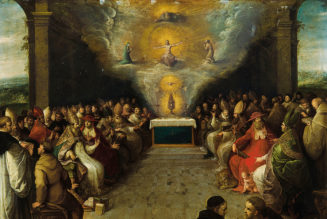 John the Baptist was once with two of his disciples and as he watched Jesus walk by he declared, “Behold, the Lamb of God!” Hearing this, the two disciples began tailing Jesus. Jesus turned, saw them, and asked them a question: “What are you looking for?” Last week, we heard how James and John, the sons of Zebedee, approached Jesus saying, “Teacher, we want you to do for us whatever we ask of you.” Jesus began by asking them a question: “What do you wish me to do for you?” This Sunday, a blind beggar, Bartimaeus the son of Timaeus, calls out to Jesus from the roadside. Jesus summons the man and once he comes near Jesus asks him a question: “What do you want me to do for you?”
John the Baptist was once with two of his disciples and as he watched Jesus walk by he declared, “Behold, the Lamb of God!” Hearing this, the two disciples began tailing Jesus. Jesus turned, saw them, and asked them a question: “What are you looking for?” Last week, we heard how James and John, the sons of Zebedee, approached Jesus saying, “Teacher, we want you to do for us whatever we ask of you.” Jesus began by asking them a question: “What do you wish me to do for you?” This Sunday, a blind beggar, Bartimaeus the son of Timaeus, calls out to Jesus from the roadside. Jesus summons the man and once he comes near Jesus asks him a question: “What do you want me to do for you?”
Why does Jesus pose these questions? Surely he already knows the answers. “Jesus immediately knew in his mind what they were thinking to themselves,” either from his divinity, or by reading their souls (as some saints have been known to do), or through his profound knowledge of human nature. Jesus “did not need anyone to testify about human nature. He himself understood it well.” So why does Jesus ask, “What are you looking for, what do you wish, what do you want me to do for you?”
Jesus knows us through and through but how well do we know ourselves? To answer Jesus’ questions we must consider and articulate what we truly desire: “What do I really want? How could life be better?” Forming the answers helps us know ourselves. Sometimes we neglect or avoid such self-reflection. We assume or despair that the unsatisfying status quo is the best we can expect. But to name our wishes and longings and present these to Jesus is an act of faith, and hope, and trust in him.
When Jesus turned on the two disciples of John the Baptist (one of whom was St. Andrew) and asked “What are you looking for?” they answered, “Rabbi (Teacher), where are you staying?” And Jesus said to them, “Come, and you will see.” What they desired was to know Jesus better, and Jesus gave them what they asked for. Last week, James and John said what they wanted was to sit at Jesus’ right and left in his glory. What they desired was not chairs but a greater share in Christ’s glory, and Jesus gave them what they asked for. Today, Jesus asks Bartimaeus, “What do you want me to do for you?” The blind man answers, “Master, I want to see.” What he desires is deliverance, for his blindness has kept him a beggar, and Jesus gives him what he asks for.
Today, you have come before Jesus and approach him here. What are you looking for? What do you want him to do for you? What do you wish for him to do? In St. Matthew’s Gospel, Jesus says, “Whatever you ask for in prayer with faith, you will receive.” Jesus says, “Ask and you shall receive.” So I dare you to take courage, discern your desires, and present your requests to Jesus with faith, that he may give you what you ask for.
Join Our Telegram Group : Salvation & Prosperity









